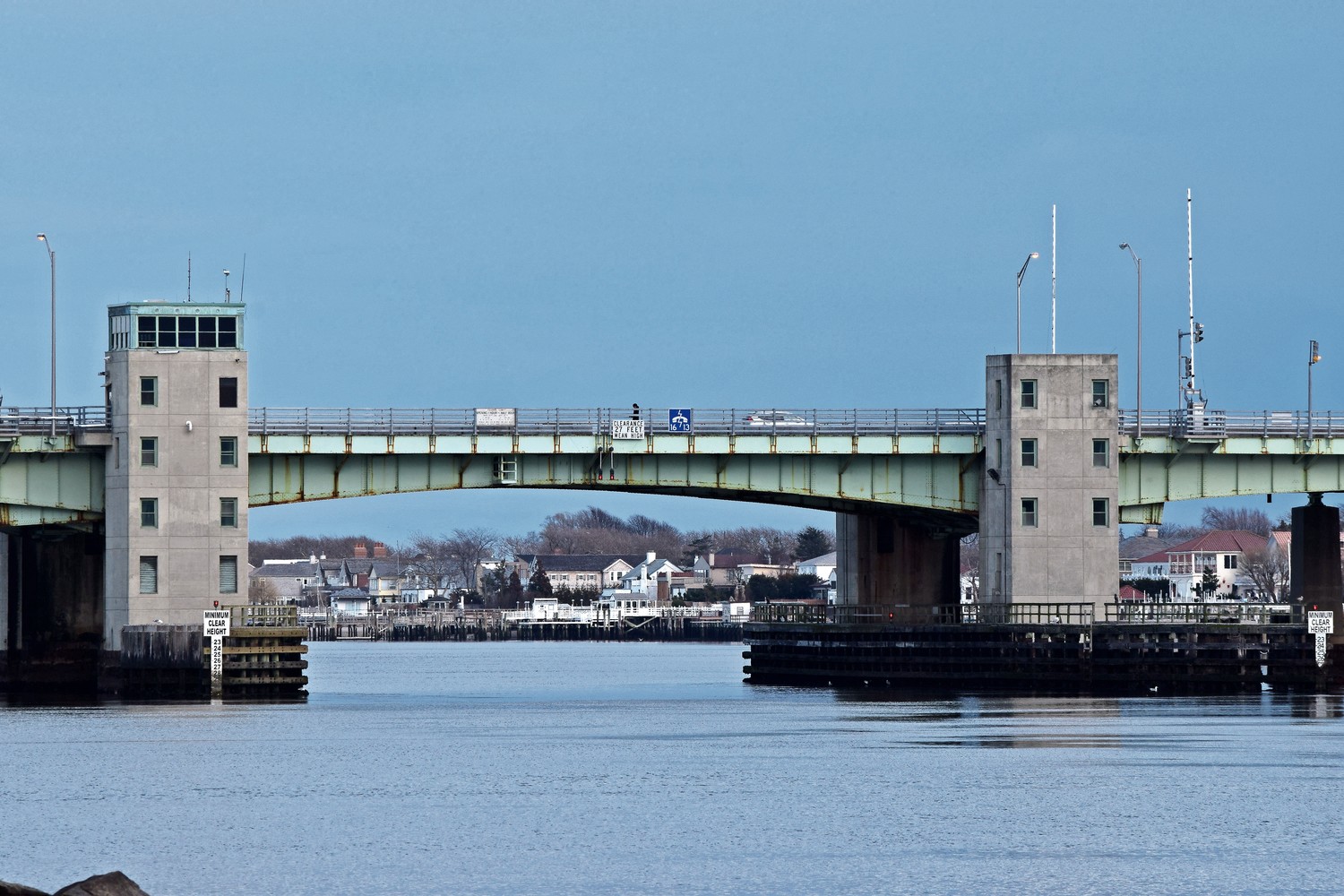Nassau County comptroller to audit bridge authority
Schnirman says review of Atlantic Beach span’s operations is overdue
Nassau County Comptroller Jack Schnirman says he will audit the county’s bridge authority, which operates the Atlantic Beach Bridge, explaining that a comprehensive financial review of the agency, which for years had a reputation for patronage and cronyism, was long overdue.
Schnirman, the former Long Beach city manager who was elected comptroller in November, said that the move comes as part of his team’s ongoing risk-assessment reviews and after he received numerous requests on his office’s Report It, Reform It tip line, established when he took office in January.
“A lot of cash moves through the bridge authority, so it is important they have solid fiscal controls in place,” Schnirman said. “Any entity that regularly collects money from the public needs to have cash controls in place that protect against fraud.”
The bridge connects the Nassau Expressway, otherwise known as State Route 878, to Park Street in Atlantic Beach, and costs drivers $2 per trip, or $15 for a 20-trip card. Motorists can also purchase an unlimited-trip decal, which costs Nassau County residents $130 and non-residents $175.
As the Herald reported in February, after years of perceived issues of mismanagement and patronage, Moody’s Investors Service issued the Nassau County Bridge Authority a high bond rating based on strong financial management and the recent completion of a $10 million renovation of the Atlantic Beach Bridge. Moody’s upgraded the bridge authority’s bond rating — a financial score that impacts the ability to borrow money — to an overall A2, citing several factors, including cutting full-time employees to the lowest levels in its history, from 55 to 32, and using multiple cost-cutting measures.
Bridge Authority Executive Director Vincent Grasso said that his office was informed about the county audit last week, and would cooperate fully. “An examination of our finances was done by Moody’s, and they upgraded our bond rating, and they recognized that we cut the workforce by 40 percent and haven’t raised tolls in 10 years and don’t expect to raise tolls for at least five more,” Grasso said. “Additionally, we also just finished a major rehabilitation of the bridge’s … span.”
Schnirman said that despite the fact that it oversees the only toll bridge on Long Island, the authority has not had an audit in 20 years. The last review by the state comptroller’s office, in 1998, covering fiscal years 1994 to 1997, found that 71 percent of the bridge authority’s toll revenue went to paying staff, he said.
“An outside audit hasn’t been done in 20 years, and it’s long overdue,” Schnirman said. “We’re going to ask the questions on whether the tolls collected are going to the right place, and whether it’s being run in an efficient manner.”
The 1998 audit recommended a number of ways to boost efficiency, including automating some toll booths to cut down on the number of toll collectors, giving Atlantic Beach residents a pass that can be renewed by mail each year, and looking into joining E-ZPass.
“Most folks are moving toward cashless tolling,” Schnirman said, “and this audit will ask the question of whether that’s something that will make sense in Nassau.”
He added that his office would also review the agency’s policies, procedures and controls: how tolls are collected and spent; how cash is managed; safeguards currently in place to ensure that cash is being accounted for; staffing and hiring; and how the authority manages employee benefits and leave.
Grasso said that cash controls are already in place, and that the 1998 audit led to a series of reforms. In its report, Moody’s said that the authority — which currently has a total operating budget of $4.1 million, with $1.9 million earmarked for salaries — is now leading the way in “efficiency, transparency and good government,” calling it a “grand slam” of achievement.
“Moody’s would not give us a bond upgrade if we were posting a deficit,” Grasso said, adding that the bridge authority generated $6.5 million in revenue in the current fiscal year, with $4.6 million in expenses.
He added that the bridge authority is subject to an independent audit each year, and that the state’s Authorities Budget Office, which oversees the operations and finances of public authorities, audited the agency in 2008 and recommended policy and procedural changes.
“For the past 10 years it’s been conducted by an independent forensic auditor, and they’ve never had any findings,” said Grasso, who was appointed executive director in 2008. “There’s never been a discrepancy in the finances in more than 10 years.”
As for switching to E-ZPass, Grasso said that the toll-collection system’s fees would likely reduce revenue.
“That has been a longtime criticism, but we’ve done studies to determine the feasibility of E-ZPass,” Grasso said. “It would end up costing the residents more — it doesn’t deliver the same level of efficiency. E-ZPass is a private company, and they charge for every transaction — they get a piece of it. And once you have a contract with E-ZPass, you don’t really have any more control over how much they’re going take.”
Tyler Marko and Jeff Bessen contributed to this story.

 47.0°,
Overcast
47.0°,
Overcast 




